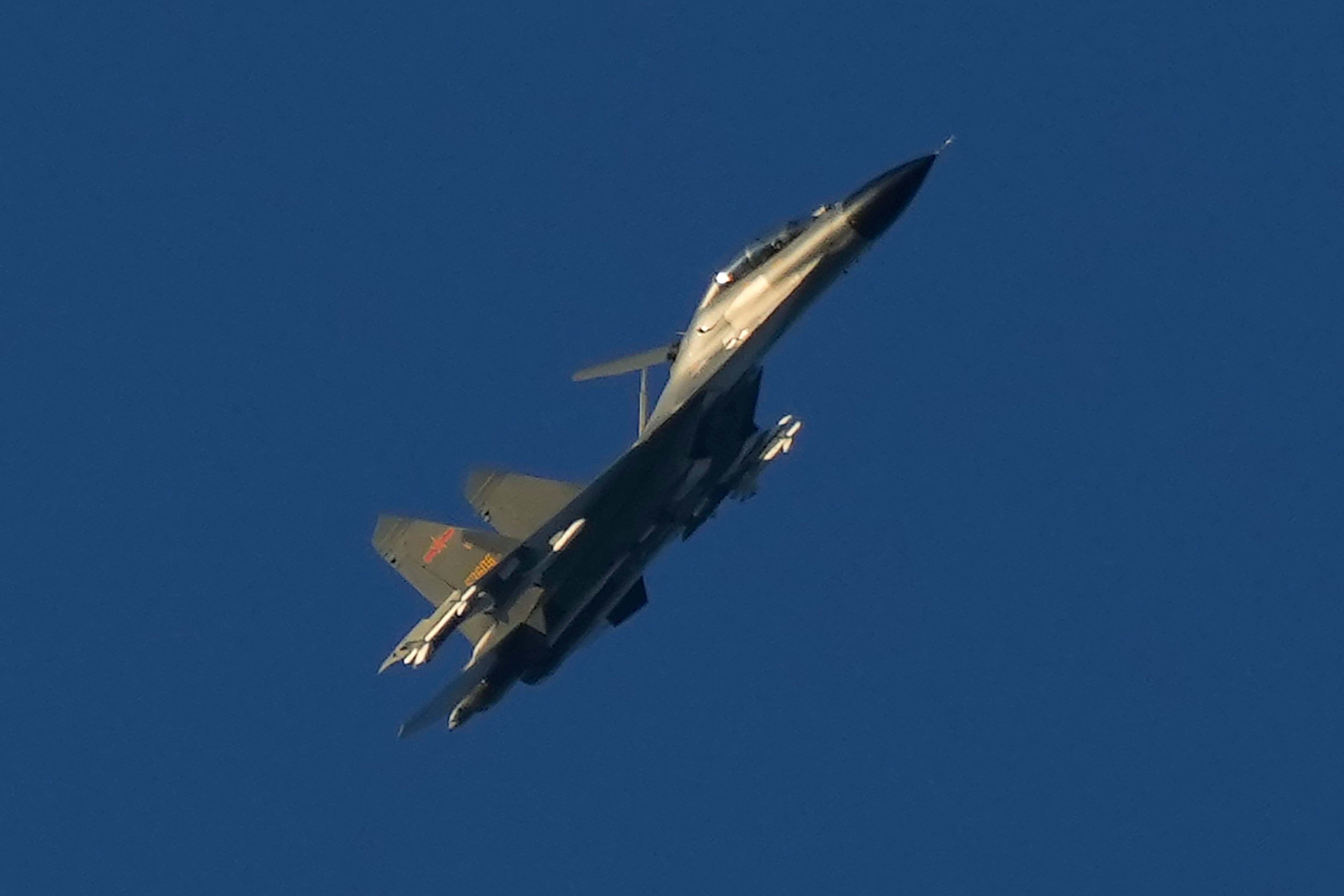US says Chinese intercept could have caused air collision
The U.S. military says a Chinese fighter jet flew dangerously close to an Air Force reconnaissance plane over the South China Sea, forcing the American pilot to maneuver to avoid a collision

Your support helps us to tell the story
From reproductive rights to climate change to Big Tech, The Independent is on the ground when the story is developing. Whether it's investigating the financials of Elon Musk's pro-Trump PAC or producing our latest documentary, 'The A Word', which shines a light on the American women fighting for reproductive rights, we know how important it is to parse out the facts from the messaging.
At such a critical moment in US history, we need reporters on the ground. Your donation allows us to keep sending journalists to speak to both sides of the story.
The Independent is trusted by Americans across the entire political spectrum. And unlike many other quality news outlets, we choose not to lock Americans out of our reporting and analysis with paywalls. We believe quality journalism should be available to everyone, paid for by those who can afford it.
Your support makes all the difference.The U.S. military says a Chinese navy fighter jet flew dangerously close to an Air Force reconnaissance plane over the South China Sea earlier this month, forcing the American pilot to maneuver to avoid a collision.
U.S. Indo-Pacific Command said in a statement Thursday that the incident occurred Dec. 21 when the Chinese People's Liberation Army Navy J-11 flew in front of and within 6 meters (20 feet) of the nose of an RC-135, a type of large reconnaissance plane operated by the U.S. Air Force.
The U.S. plane was “lawfully conducting routine operations over the South China Sea in international airspace,” the statement said. Its pilot was forced to “take evasive maneuvers to avoid a collision," it said.
China frequently challenges military aircraft from the U.S. and its allies, especially over the South China Sea, which China claims in its entirety. Such behavior led to a 2001 in-air collision in which a Chinese plane was lost and pilot killed.
“The U.S. Indo-Pacific Joint Force is dedicated to a free and open Indo-Pacific region and will continue to fly, sail and operate at sea and in international airspace with due regard for the safety of all vessels and aircraft under international law," the statement said.
“We expect all countries in the Indo-Pacific region to use international airspace safely and in accordance with international law," it said.
China deeply resents the presence of U.S. military assets in the South China Sea and regularly demands its ships and planes leave the area. The U.S. says it is fully entitled to operate in and over the South China Sea and ignores the Chinese demands.
Such dangerous incidents persist despite U.S.-China agreements on how to deal with unexpected encounters.
The U.S. and others have also accused China of harassing military aircraft and ships in the East China Sea off the Chinese coast and as far away as the Horn of Africa, where China operates a naval base.
There was no immediate response from the PLA, the military wing of China's ruling Communist Party, to the latest U.S. complaint.